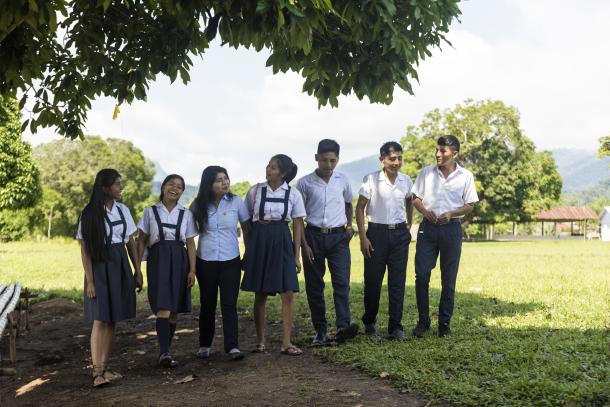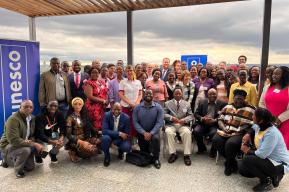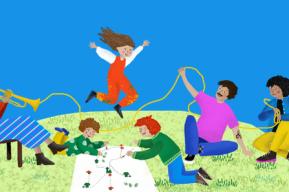News
UNESCO and Porticus Foundation initiate dialogues on the study 'Amazonía, educación, y desarollo sostenible’

UNESCO Peru, through the Horizontes program, and the Porticus Foundation presented contributions and opened dialogue at the University Antonio Ruiz de Montoya - UARM regarding the study 'Amazonía, educación, y desarollo sostenible’. The objective of the study is to analyze the situation of education in the Peruvian Amazon and propose strategies for its improvement.
"The study provides us with a basis for generating ideas and proposals that allow for a connection between educational opportunities linked to identity and territory in order to urgently promote sustainable development models," said Guiomar Alonso Cano, UNESCO Representative in Peru.
Anna Nascimento, Education Programs Manager at the Porticus Foundation, highlighted the importance of this study for promoting the sustainable development of the Amazon. "This study aims to work for all those interested in the Amazon, promoting its sustainable development, training, and recommendations regarding educational offerings in the region," she stated.
The Peruvian Amazon is a territory with great cultural and linguistic diversity. According to the study, it is home to 51 out of the 55 indigenous villages and 44 out of the 48 native languages spoken in Peru. However, students in the Amazonian areas face the greatest difficulties in accessing both basic and higher education, and they show lower levels of learning achievement.
In the Amazonian territories, there are 24,133 basic education institutions, of which 82.1% (19,817) are located in rural areas, many of them being small multigrade schools. In the face of this reality, the philanthropic foundation Porticus, with the support of its partner UNESCO and the Horizontes Program in Peru, commissioned the study 'Amazonia, Education, and Sustainable Development.'
"Official statistics show the perpetuation of social gaps in the Amazon. The study revealed that there has been improvement; however, its growth rate (0.39) is far from the national level. Its teenage population has the least access to secondary education," explained Iñigo Maneiro, co-author of the study.
The study, conducted by Elena Burga, Luis Hiraoka, Regina Moromizato, and Iñigo Maneiro, consists of two parts. The first provides a general overview of the education situation in the entire Amazon region, highlighting the progress made, the difficulties faced, and the persistent challenges. The second part provides a more detailed account of the education situation in three specific territories: the middle basin of the Marañón River (Amazonas and Loreto), Madre de Dios, and the Central Selva, particularly the provinces of Satipo (Junín) and Oxapampa - Puerto Bermúdez (Pasco).
Elena Burga, co-author of the study, pointed out that "Amazonian societies undergo profound transformations, especially indigenous populations." She emphasized that the Amazon and global challenges require a state policy and collaboration among stakeholders. "We must focus on the potentialities rather than the weaknesses of others," she emphasized.
In this initial dialogue and contribution to the study, the importance of developing public policies and strategies to improve the quality of education in the Peruvian Amazon and ensure access for all students was highlighted. Additionally, space was opened for dialogue and exchange of ideas among the various actors involved in education in the Peruvian Amazon.
"The study links education and sustainable development with a long-neglected territorial reality. Research such as the one we are sharing today constructs more coherent identities for a nation aware of its biodiversity," stated Juan Dejo SJ, Vice Rector for Research of UARM, at the conclusion of the event.
The study 'Amazonia, educación y desarollo sostenible´ is a valuable tool for understanding the current situation of education in the Peruvian Amazon and for seeking solutions to improve it. UNESCO Peru and the Porticus Foundation will continue working to promote access to quality education throughout the Peruvian territory."









